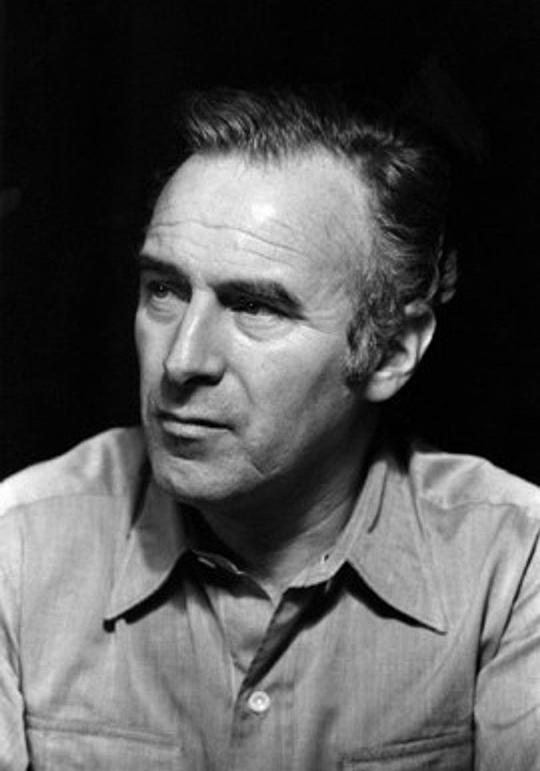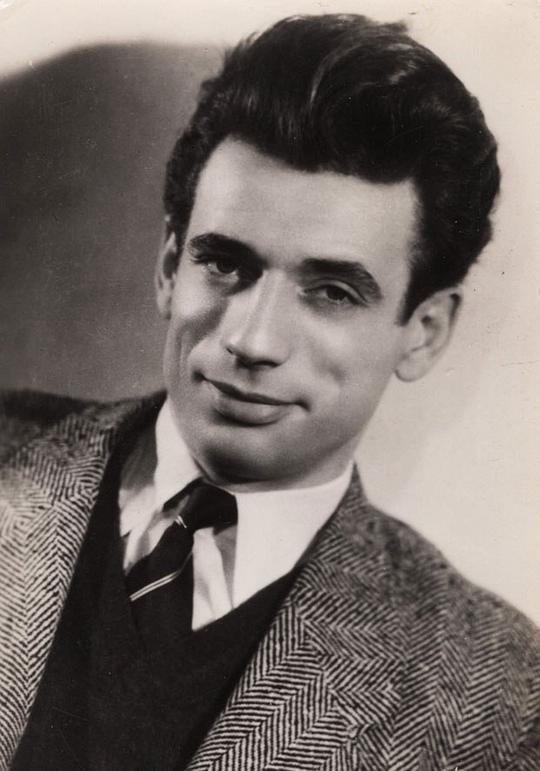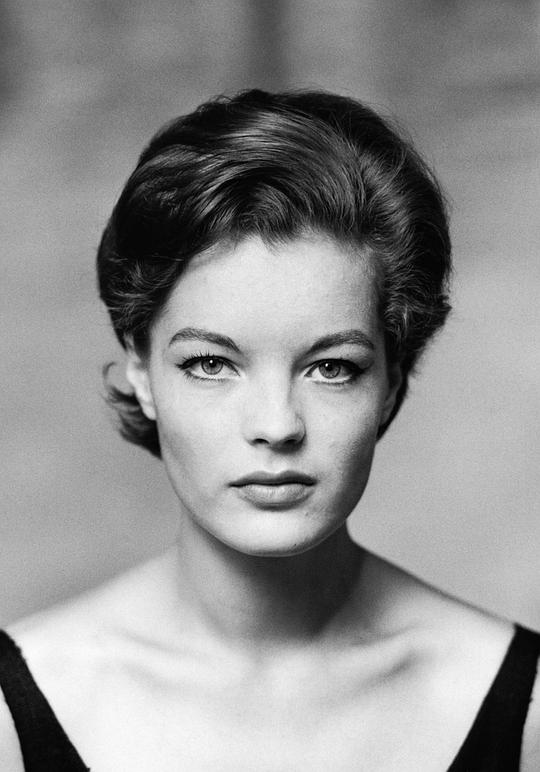塞萨和罗萨丽 César et Rosalie(1972)
简介:
- 塞萨(伊夫·蒙当 Yves Montand 饰)和罗塞丽(罗密·施奈德 Romy Schneider 饰)是一对恩爱有加的情侣,两人都将彼此视作自己要携手步入婚姻殿堂的所在。然而就在他们即将成婚之际,罗塞丽的前男友大卫(萨米·弗雷 Sami Frey 饰)忽然现身,这半路杀出的程咬金搅乱了罗塞丽内心的春水。面对大卫猛烈热情的攻势,罗塞丽就快要失守了。
演员:
影评:
- 温冽如茶的克罗德. 苏提(Claude Sautet)拍飙车与肉体冲撞,还连贯数次,着实看得我发愣。他的男一号并非他人,奥德伊与德帕迪约尚且青春年少时,这位已经在法国影坛技压群龙。他火辣、欢快,外扬,纵然处置深沉角色,摆手蹙眉的频率也高于其他演员,仿佛吐哺热流的火山口,时刻等待爆发。我记得那部根据卡瓦尔达(Anna Gavalda)同名小说改编的电影《在一起,足矣》(Ensemble,c'est tout),阳光顶破云层的调子,故而昏闷持续较久,我忽然听到一首很耳熟的他唱的《脚踏车》(La Bicyclette),歌中的波莱特正与戏里出院的老太太重名,一路飞扬,菲薄的喜悦渐渐浓稠至于画面外,捂热我的心。单凭片歌便提升全局气氛,大约也只有他能吧,伊夫.蒙当(Yves Montand)。
在苏提1972年执导的影片《凯撒与罗莎莉》(César et Rosalie)里,他就是个名副其实的凯撒,热情如火,挥金如土,霸气与独占欲强烈,坐拥事业帝国。苏提的温静,被他搅乱风云,我看戏时,直觉那惯常稳健的叙述节奏,都被他带快了几拍。凯撒爱罗莎莉,已到谈论婚嫁阶段,未料罗莎莉的旧爱、消失五年的大卫突然折回。二男初晤,即卯足弹药,一上来就飙飞车。
苏提为凯撒设计的搞笑台词,很可体现万事顺意的他所遭遇的空前挫折。他骨子里其实挺傲气--当然蒙当更强化了它,--大敌当前也自有一套打压对方的精神胜利法。他对罗莎莉大赞大卫很“三八”(法语里sympathique常常截抬首二音节,音如汉语“三八”,意思是亲切友善),偏偏不肯提他儒雅俊朗,罗莎莉直言大卫的魅力(le charm),他才略为矮矮气焰。他问罗莎莉为什么对大卫念念不忘,像孩子一般怄声道,很帅是吗,我也有我的帅啊(je suis aussi beau de mon genre)。当战线屡屡溃败,自欺欺人都不奏效时,他又真“三八”起来,侧面探底,正面太极,甚至编出很糙心的罗莎莉有身孕不日成婚的谎言,恨不能挥臂砍切大卫与她的牵连,你你我我断干净(chacun chez soi)。
如果说众人面前的凯撒是开心果、艳阳,脾性直白急火如赤子,那么大卫恰恰就是他的反相。他的饰演者萨米.弗雷(Sami Frey)浓眉梢角生得极挺翘,整张脸跟着提衬,他扬眉一笑或蹙眉凝视时,别有一番牵动人心的英俊。他比较符合苏提一贯的主演,越是用情深刻脸上越漠然,好像什么都不必太心急,猎望姿态就够了。他与凯撒,容貌乃至性格皆如水火,那边厢热诚汹涌什么心事都映脸上,他则不动如山,守势倒仿佛转为攻防,等着心上人投怀,情敌阵脚大乱,不可谓不聪明。不过正因大卫出不来凯撒那样的红脸丑态,我反而有点疑心他的感情浓度,无论五年前他轻易把罗萨里推给旁人,还是五年后他的冷静观望,及依然很从容的退场。当然,有的人对爱情,就喜欢心口不一,罗莎莉写给大卫的信评他虽然爱,却不争,这是比较相符的。
那么三角关系,应当如何倾斜,罗莎莉的答复事实上给得很靠前。她的反复摇荡,似乎一直在印证那句得不到的方才好。大卫留下了严重缺失感,加上他们志趣投合,于是她很自然地青睐他。恋人重逢,那样微妙的触动,真正轻舟短棹,浪纹如篆,似有若无间,隔年的封存曝露太阳底下,因为旧而分外暖。然而与大卫一起,她仍不免惦念凯撒,后者的孟浪,促成了她的仓促归属,却到底熨不平心底折痕。待大卫退守,她同凯撒共朝暮,又捺不得悬牵。两个男人都问她,你爱我吗?她都说爱,他们一样问她,那你想他吗?她也供认不讳,没错。
于是男性争持的重磅戏份,最后又归结到柔柔弱弱、女子的一朵微笑,一次点头,一影思念。这个故事,是有点像唯美童话《猜猜我有多爱你》(Guess How much I Love you)的,那里面,一双兔子较真,各自要丈量对对方的爱。而《凯撒与罗莎莉》,也叠加了无数次猜心,猜谁有资格爱她,谁爱她多一点,她心中的人又是谁。妙就妙在,虽不乏猛烈与急躁,苏提处理这些细密心思,还是置于无声之处,收在人物含蓄的话口,方便你去想,而非承接一个定然。
当然,墙头草,无论男女,总归有点讨人嫌。不过由秀雅美丽的罗密.施奈德(Romy Schneider)担任,只要她飘忽笑一笑,好像连带观者都没了脾气。allocine上说原定人选是卡特琳.德纳芙,苏提比较倾向施奈德,我觉得这个选择还满适合的,她不具那种秒杀你的冷艳,倒是希腊式柔和线条,空濛的眼神,眉心的薄纹,退入淡远的背景,很相宜举棋不定的画面。数度忽然逃逸,也对应着形象的影绰。
我隐约记得木村拓哉宫泽理惠田村正和合作过一出类似的三角爱情,也是比来比去,在一个短暂均衡后,女主角选择离开,等她决意重新面对时,男人们已然惺惺相惜,达成了所谓男人间的友谊。导演也给不出正解,咔在女人复返、三人凝眸的那一瞬。或许,没有结果、不予置评,正是《凯撒与罗莎莉》遭压弃多年找不到制片人的原因之一吧,延宕为偶像剧,这个症结点依然无法舒张,不能轻易判决。我想,乱了时态的夹心爱情,恐怕难免有此一劫,不了了之也可能才是最好的均衡。我个人喜爱一横横皱纹的蒙当老脸在先,他一愁苦,同情分便上窜,可是我毕竟说不得对错。这么攀比之后升华的爱情,于当事人,倒算幸运,幸运得多年以后,还可以分享欲说还休的注目。最痛的,莫过于眼睁睁目送所爱的人离开,无论什么形式,被时间判刑,无力挽回。
当然这一种,现实里经历就罢了,不必要再拿到影像,重复受罪。 - 这是一部非常好看的法国电影。罗蜜·施耐德塑造的成功形象绝非只有茜茜公主,在此片中同样大放异彩。
片中罗萨丽(罗蜜·施耐德饰)与凯撒和大卫微妙的三角关系非常有意思,一个是现在交往的恋人,一个是曾经的恋人,两个男人因为罗萨丽而起冲突,也因为罗萨丽的出走而惺惺相惜。
凯撒和大卫的第一次照面非常直截了当,友好但充满了火药味。
敏感的凯撒问刚才跟罗萨丽聊了些什么,于是大卫实话实说:“我非常爱罗萨丽。”
“这很正常,人人都爱她。”
“不,但是,你这话是认真的吗?”
“是的。”
“从什么时候开始的?”
“一直都是。”
“一直?这是什么意思?”
“在你之前,在罗萨丽的前夫之前。”
凯撒心生醋意,但还是故作轻松的样子:“那太糟了。不管怎么说,你说出来就很好,很好。”
事后凯撒向罗萨丽试探:“那个家伙非常不错,也许有点太自以为……一个随性不羁的家伙。”
罗萨丽回应:“就像你一样。这叫做‘魅力’”。
“你们之间究竟发生过什么?”
“没什么。”
“有什么……没什么……别这么应付我!”
“要么就是有什么。要么就是没什么。”
“我问一个问题,然后你回答,这就是生活!(典型的大男子主义)反正无论是什么事,我不会在意的。”
“如果你不在意,为什么要那么大声?”
“我只是问你。”(意识到自己审问的口气不妥,又软了下来)
……
“他是不错,但我不介意给他一个拳头!”(男人的好胜心膨胀)
凯撒爱罗萨丽,为了心爱的女人争风吃醋是人之常情,但他错在欲把罗萨丽当作一件物品占为己有,控制罗萨丽的思想和行为。罗萨丽可不吃这一套,她不属于任何人,更不属于凯撒,她是独立的个体,任何人都没有权利支配她。罗萨丽非常有主见,绝不会因为凯撒意识到犯下的过失请求原谅而心慈手软。且看凯撒因一时冲动砸了大卫的画室后罗萨丽怎么以牙还牙。她给凯撒开了张损失评估,为了不给凯撒添麻烦,自己取走了凯撒保险箱中的钱。对于凯撒,分手费贵了点,但花钱买这个教训还是值得的。哦,可怜的凯撒,作为成功生意人的那种春风得意劲全无,他可以对生意上的事运筹帷幄,赚大把的钱,但是对于一个喜爱的人越是在意甚至疯狂,越是适得其反,满盘皆输。
对于凯撒表现出的与大男人外形不相称的小肚鸡肠和失去理智的行为,罗萨丽毫不避讳,有一说一。尽管凯撒说了慌,做了错事,但她对凯撒是友好的。只是这层微妙的三角关系,已经完全打破了原先平静的生活,三个人可以和平共处,但总归还是多了一个人。
凯撒觉得罗萨丽不能什么也不说就分手,但这发生了。他和大卫都没有试着再去找她。罗萨丽一开始有点担心,但后来放心了。她还不肯定自己的想法,但她觉得这次是时候了。她离开了那个城市。
这之后,凯撒和大卫倒成为了朋友,偶尔钓鱼、打牌、计划着旅游。当罗萨丽看到两个男人平和友好地坐在那儿交谈,她欣慰地笑了。 老师要求看的 在网飞找到了有法语字幕的 我大为感动 把小critique放上来记录下 Nous sommes jeunes et beaux, pourquoi ne pouvons-nous pas devenir fous amoureux, explorer nos émotions dans un amour fou ! Pourquoi aimons tant ce film captivant, le triangle amoureux avec leurs troubles hormonaux——David, César et Rosalie. Le scénario de Sautet décrit parfaitement cette relation triangulaire complexe de manière claire et nette, et nous permet également de comprendre les principales émotions des trois personnages. Après le début du film, une course sur route tendue et passionnante montre ces trois personnages, et fait également allusion à la prochaine intrigue, la relation entre les trois est hors de contrôle. Une connexion parfaite et à la fin, César et David reprennent la route de Paris après avoir appris que Rosalie était partie, César perd le contrôle et fait dérailler la voiture encore une fois. La réaction de David en descendant de la voiture est exactement la même que Rosalie, laissez-nous ressentir une émotion différente dans cette action, c’est l’amour. Bien que César ait l'air extrême et même un peu effrayant, Sautet sait empêcher le public de détester son personnage, bien sûr, cela est aussi indissociable de la merveilleuse performance de l'acteur. Il a conçu beaucoup de répliques amusantes pour César, par exemple lorsqu'il demande à Rosalie pourquoi elle était obsédée par David, il dit comme un enfant "je suis aussi beau de mon genre”. Tous les trois sont tellement charmants qu'à la fin on trouve tellement raisonnable et naturel que ces deux hommes tombent amoureux de la même femme et finissent amoureux l'un de l'autre. Sautet utilise son travail parfait pour nous dire que ce sont des êtres humains, des créatures complexes, et que nous avons des émotions complexes. S'il vous plaît, aimez ce film !

French filmmaker Claude Sautet’s sixth feature, the title refers to an unmarried couple, César (Montand) is a successful scrap merchant and Rosalie (Schneider), a divorcée who maintains an amicable relation with her ex, Antoine (Orsini), a painter. But the unbidden return of David (Frey), Rosalie’s first love, casts a shadow in the status quo, inaugurated by a foolhardy competition of speed.
Rosalie becomes oscillating between César and David, a quintessential dilemma of choosing between the one she loves the most and the one loves her the most,any inconspicuous outward sign can alter her inner decision in a trice, and through the portrayal of a magnificent Romy Schneider, viewers is well-disposed to forgive Rosalie's caprice, being a beautiful woman, her trumping card is her absolute freedom, refusing to be mired down in any insalubrious compromise, whether when she is fed up with César’s vulgarity and petty maneuver or the time she finds herself marginalized in their ménage-à-trois tryout.
David and Rosalie are on the same frequency, they understand each other’s feelings, and their rapport has a pure and consonant quality that everyone hanks after with his/her partner, but on the other hand, Rosalie and César’s relation is more prosaic and realistic, because of the money factor, an amour-fou César is very much disposed to splurge on all his money just to please her, to buy a painting from Antoine, to recompense the damage he has wreaked on David’s studio (incidentally, David is a graphic artist), to buy back Rosalie’s family holiday house on the island of Noirmoutier, those costly gestures irrefutably soften Rosalie’s resolution, hardly can any woman resist a man’s testament of love like that, not to mention Yves Montand imparts eloquent panache into César’s almost innocuous single-mindedness, and even evokes an air of sympathy in the long run in spite of his unbearable machismo
David is the more ambiguous type, he loves Rosalie but not necessarily wants her, Sami Frey’s well-bouffant handsomeness makes him fittingly inscrutable but in fact, he is not dissimilar to Rosalie, has his own volition cannot be violated. To set the film apart from other crops dealing with the love-triangle quagmire, Sautet and his co-scriptwriters go out on a limb to envision a scenario wherean equilibrium between the nouveau riche and the artist is miraculously established in the third act (which, ill-fatedly, received a rushed collection of montages in company with a voiceover from Michel Piccoli), contradicts any malignant foreknowledge in terms of its ultimate fallout. Exuberantly tarted up by its retro-flair and throbbing dynamism, plus a beneficent coda, CESAR AND ROSALIE bewitchingly contends against the volatile drama in its center but also plays up to a liberal-minded homeostasis, which archly transcends our insularity concerning gender roles and delivers us from the usual deluge of hokum, that is a real blessing.
referential point: Maurice Pialat’s WE WON’T GROW OLD TOGETHER (1972, 5.6/10); François Truffaut’s JULES AND JIM (1962, 8.6/10).






